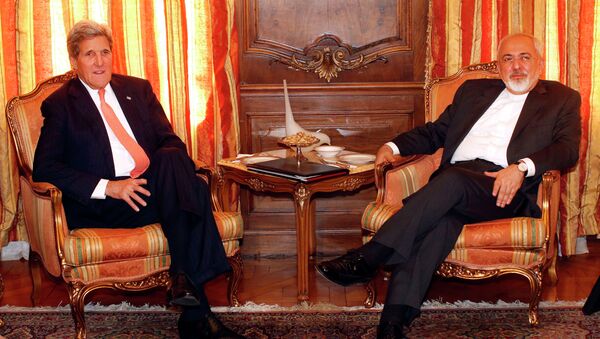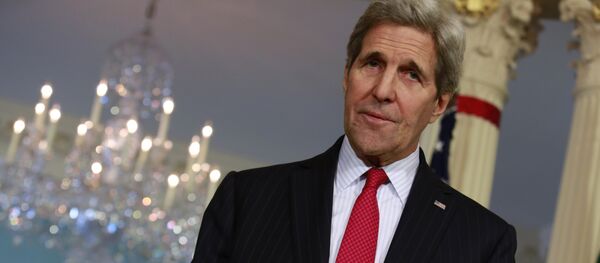Commenting on the joint effort to keep Prime Minister Haider al-Abadi in office, Mossoud Shadjerah told Loud & Clear that "[Iraq] is getting to the point where it becomes effective against Daesh. Daesh is losing ground, so any disruption in this process will cost Iraq and all of the neighbors dearly."
Shadjerah explained that the current prime minister comes from the party that was the strongest opponent of former leader Saddam Hussein, and prior to his death, had to act from exile. This party was backed by the US during the Iraq war.
Asked why the PM's tenure is seen to be in such a fragile state that he required foreign assistance to remain in office, Shadjerah explained: "Since the time of Saddam Hussein, Iraq has been unstable. It failed to fulfill the aspirations of its people for safety, for security and other aspects of economic independence."
According to Shadmjerah, after the war, "everything was smashed up, destroyed and removed, so the vacuum was created. The same thing happened in Afghanistan and the same thing happened in Libya. That's why we got crises in all these places."
"The war in Iraq," Shadjerah continued, "the vacuum that was created, contributed to create Daesh. The policy in Syria — exactly the same thing — created an environment where groups like Daesh would flourish. Same thing happened in Libya."
"In Iraq, in Syria we could blame Iran's involvement, but in Libya there was no Iranian involvement and no Russian involvement. The policy of going in, and, instead of diplomacy, destroying the whole infrastructure, has showed us in Afghanistan, in Iraq and in Libya that it creates an environment for exactly these extreme groups to flourish."
Asked whether this kind of disaster was a design of the US government or merely a result of its shortsightedness, he said: "first, there was Afghanistan. One could say that this was a shortsightedness, that the policy backfired with the 9/11 attack. But then there was Iraq. And some people trying to find excuses. But we see this thing happening over and over again, and it only happens in places where there is a level of independence in these states."
"Then obviously one come to a conclusion that no one is such a fool to make the same mistake so many times, as systematically," Shadjerah asserted. "So therefore you have to say that there are elements — at least — who actually designed this. And if you pose a question who benefited from this, it is definitely not the [Middle East] region who benefited from this. The only people who could probably benefit is Army industry and certain set of powers who didn't want a strong opponent in the region."



